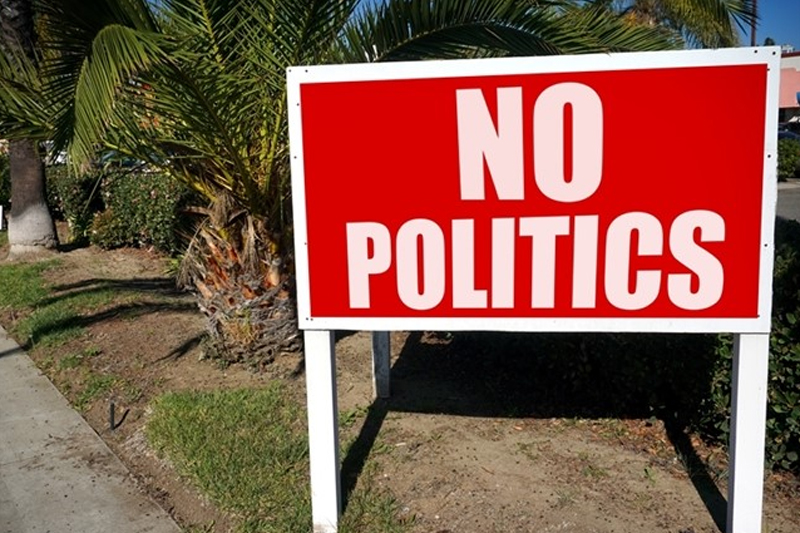Keeping Politics Out of Your Community Association
 Not surprisingly, the chatter about whether or not political signs should be permitted in private residential communities has increased as we draw closer to the elections in November.
Not surprisingly, the chatter about whether or not political signs should be permitted in private residential communities has increased as we draw closer to the elections in November.
Let’s first discuss whether or not an owner in a Florida HOA has the “right” to install signs. The short answer is “no” with one exception. FL homeowners’ associations can prohibit all types of signs other than one security sign located ten or fewer feet from the entrance to the home. All other signs including “For Sale” signs, signs installed by vendors doing work at a home, seasonal and congratulatory greetings and political signage may be prohibited IF the board determines that doing so is in the best interests of the community. Naturally, if the members disagree with their board’s decisions they may decide not to re-elect that board in the future.
Some owner signs enhance a community’s charm including seasonal greetings, and in the time of Covid, the congratulatory yard signs letting neighbors know of a child’s accomplishments when a traditional party could not take place. However, other signs cause concern. Many boards dislike the posting of “For Sale” signs as an abundance of those signs may send the wrong signal to both residents and potential purchasers.
And, it goes without saying that political signs these days are capable of igniting deep fractions inside residential communities. One school of thought is that some people’s sensitivities should not dictate others’ ability to promote their political candidate of choice.
The other school of thought associated with political signs is that they do not belong inside a private residential community where they can do more harm than good. The advocates for keeping politics out of communities believe that one’s political ideology is more productively expressed through monetary donations, volunteering for a campaign and/or waging war on social media sites to one’s heart’s content.
Some owners maintain that their constitutional rights are being trampled if their association denies them the right to install a political sign or political flag. In fact, you need a state actor to be the entity violating one’s First Amendment rights in order to mount a sound constitutional argument. In Florida, condos and HOAs have not been found to be state actors so prohibiting political signs and political flags is possible either through a recorded covenant or a board rule if the board has rule-making authority under the governing documents. In the case of Quail Creek Prop. Owners Association, Inc. v. Hunter, 538 So. 2d 1288, 1289 (Fla. 2nd DCA 1989), the Second District Court of Appeal found that an association’s sign restriction was not unconstitutional as “neither the recording of the protective covenant in the public records, nor the possible enforcement of the covenant in the courts of the state, constitutes sufficient “state action” to render the parties’ purely private contracts relating to the ownership of real property unconstitutional.”
Some boards choose to regulate the number and size of political signs and political flags as well as how long they can remain in place. However, when it comes to wording on those signs and what may or may not be considered offensive that requires a more in-depth analysis which some boards understandably wish to avoid. After much debate, many communities simply decide that political signs are best left outside their communities.
The place you call home should be a respite from the world and respites often don’t involve contentious political signage next door.





